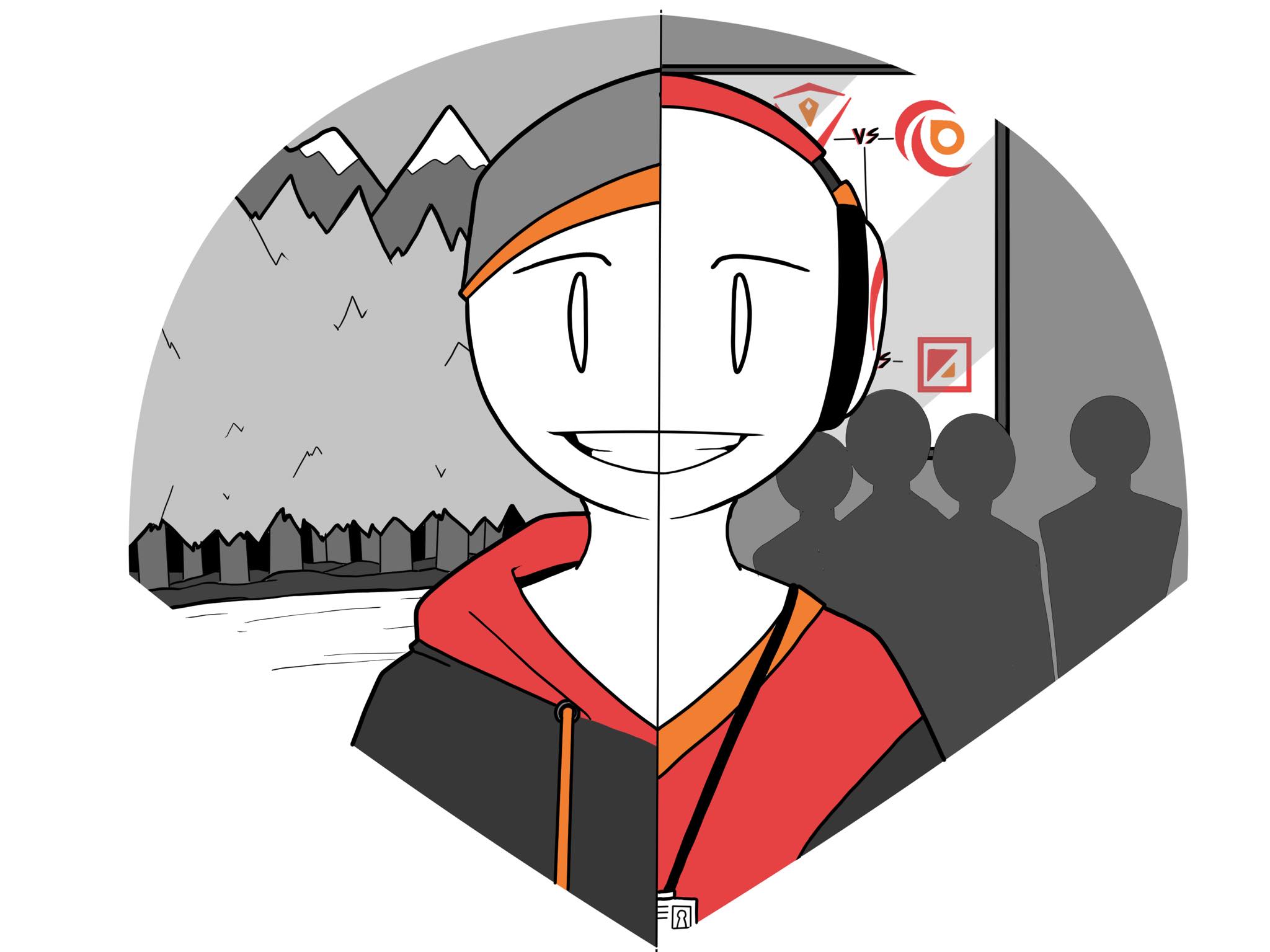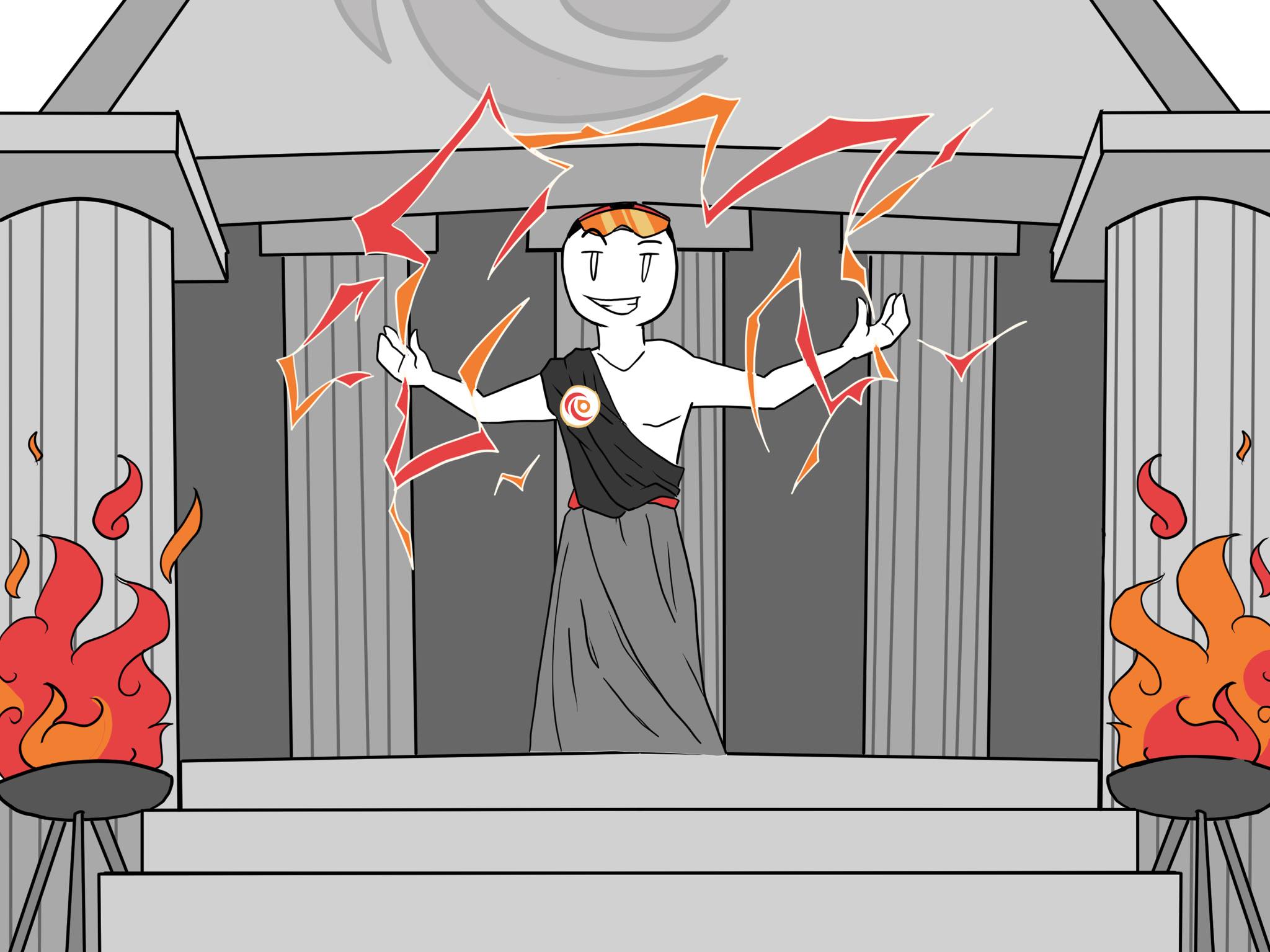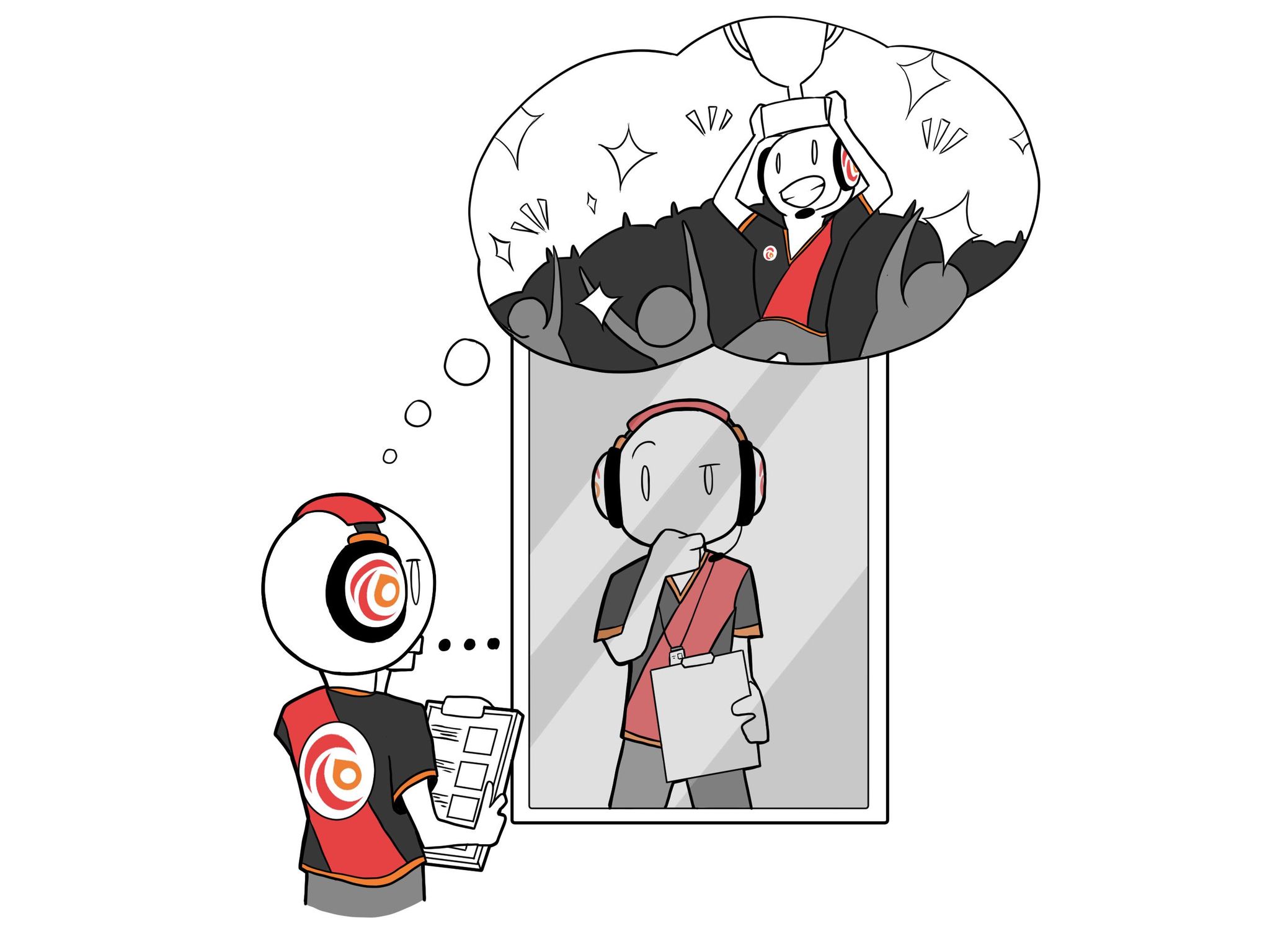Why is it important to have a growth mindset in esport?
A growth mindset is important simply because having a fixed mindset stops development in all areas of life. A growth mindset gives you the necessary mentality for the opposite: continual, feedback-driven, and realistic development.
To succeed as an esports athlete there is no way around hard work, countless hours of training, and competing at every chance you get. And all that takes mental resilience. But an abundance of players thinks this mental strength should come from becoming tougher, self-obsessed, or even aggressive towards teammates and opponents.
Luckily the solution to building lasting mental resilience is much simpler than those ideas. The secret that is hiding in plain sight, is exemplified in Carol Dweck’s “Mindset”. And it is put into poetry by Bruce Lee:
“You must be shapeless, formless, like water. When you pour water in a cup, it becomes the cup. When you pour water in a bottle, it becomes the bottle. When you pour water in a teapot, it becomes the teapot. Water can drip and it can crash. Become like water my friend.”
Now before you shake your head, take a minute to understand why this is profound wisdom, and why it is practiced by successful people across all businesses, sports, and even social life.
What Bruce Lee meant by this is simply that adopting a mindset of fluidity is essential for meeting life’s challenges. Carol Dweck calls this mindset the “Growth Mindset” because the consequence of practicing this mindset leads to growth in areas such as knowledge, calmness, competencies, learning, social skills, and self-reflection.
Being able to set aside one’s immediate feelings, fear, and beliefs, and explore what new situations and other people have to offer will lead to all the positive consequences listed above. Being like water, constantly able to adapt to the new possibilities and challenges you face, without closing yourself off.
In other words: you can either have a fixed mindset or an open (growth) mindset. In this article, we will explore the differences, consequences, and ways to practice the growth mindset.
“I don’t divide the world into the weak and the strong, or the successes and the failures… I divide the world into the learners and nonlearners.”
Growth mindset – the fundamentals
To completely understand all the fundamentals of the Growth mindset, we urge you to read “Mindset” by Carol Dweck or spend time researching the enormous amount of accessible knowledge on the subject online. Here we are exploring some of the fundamentals for an esports professional.
Appreciating failure
A common reaction to failure is self-doubt, condescending comments from others, and unwillingness to try again. But the reality is that most failures are opportunities for learning. If you are working towards a goal and take time to analyze all the things that did not work, you learn what you can do instead. Often, children are masters of this. They keep on trying until they have made enough mistakes to know what not to do. And even more interesting about humans, in general, is that we are actually motivated by mistakes. How many times would you do something that does not challenge you at all? Imagine a game in which you won by just pressing a big red button. It would be meaningless. But carrying out complex strategies in a real-time online environment, while coordinating with your teammates and anticipating your advisories: THAT is motivating. Simply put: mastering complex tasks takes multiple failures, which leads to learning. Therefore, failures essentially give challenges meaning. Learn to appreciate all failures can do for you.
Understanding the power of beliefs
As human beings, our mind has developed to be belief-seeking. We look at the world through our beliefs and we make the new things we learn to fit into what we believe. It is impossible to avoid creating beliefs. But luckily, it is not impossible to accept that your beliefs and others’ beliefs are not the truth. By also being aware that beliefs can change, we can harness the power of cooperation to help realize our own and others’ beliefs.
You might believe that the strategy that you want to use is the right one. But your teammate thinks the same about his strategy. Now you can either both adopt a fixed mindset and shut off all communication until someone bends. Or you can explore the different tactics, together, and come closer to an agreement on what is the better way to do. Who knows, you might learn something?
A belief we sometimes meet when working with people can be exemplified like this:
“I can not overcome this problem, because this is just the way I am”.
The term “this is just the way I am” is a dangerous belief to have. First of all, it is a fixed mindset and therefore does not lead to learning. But more than that, it also has the natural consequence of leading to a self-doubting a self-blaming mentality. Especially if everyone else around the person is moving beyond the problem and learning from their failures along the way. The only stories the person has left to tell out himself are either “I am not good enough, because I could not do as everyone else could” or “everyone else is wrong to do this thing”. This is an essential component of the growth mindset: Believing that you can learn and change. Remember: You are not right. I am not right. And neither is the coach. It is a process of change.

Being non-judgmental
A part of the growth mindset lies in being non-judgmental towards other people’s ideas and personas. It also applies to not being judgmental about new situations and new challenges. Take notice that this is not the same as saying that you should keep running your head against the same wall. But rather that you should not judge the wall before you have tried it. Who knows, you might end up in Hogwarts.
In teamwork, being non-judgmental is essential to creative development. Not putting down ideas before that have been examined sufficiently. To be able to do so, any team must spend time discussing how they can overcome the natural human urge to push one’s own beliefs onto a new idea. Finding a method or a culture in which the team can help each other to overcome premature judgments is one of the core mechanics of successful teams.
Feedback
If you adopt the growth mindset and learn to overcome initial feelings of fear and doubt about others’ evaluation of your work and personality, you can unlock the huge potential of feedback. Feedback is simply a tool that is indispensable in all professional life. Basically, we can not fathom everything ourselves. And often times, the things that we think we know for sure about ourselves turn out to be less true when we hear others talk about those things.
Feedback is a mirror that you can choose when you want to look into. But it is a mirror that can give you free advice whenever you need it, and even help you guide your career in the right direction. Because this is so important, we will dedicate an entire article and video to the subject. Therefore, we will not dive deeper into feedback right now.
Self-reflection
The closest person you will have in your life is yourself. The ability we have to analyze our own behavior and cognition is what separates us from animals. It is therefore a fundamental part of the growth mindset that you learn to reflect upon yourself and your behavior. Luckily you always have yourself right where you want you. Less luckily, it is not always easy to reflect upon yourself, as it takes constant awareness about your own beliefs, a lot of mental energy, and can be impossible to be truthful about.
A good piece of advice is to keep some form of a journal. It is easy to write down thoughts, tasks, or results in a journal. This gives you the chance to reflect upon how your feelings, beliefs, thought, and behavior changes over time, and how different situations affect you. Writing your experiences down also has the advantage of being a tool for instant reflection about your current state of mind.
Note that there is more to be learned by reading “mindset”. This is just a short inspiration for how you can move towards a growth mindset. Therefore, the list above is not complete. It is chosen to cover some of the most important factors in a growth mindset when applying it to esport.
What is it?
Fixed mindset
- Thinking you are perfect
- Thinking you are unable to change
- Thinking your beliefs are the only truth
- Thinking there is an end-point to development
Growth mindset
- Being able to reflect upon yourself
- Accepting the help and feedback from others
- Being brave enough to try new things
- Mastering through failure
- Being non-judgmental towards new ideas

How can we gain a growth mindset?
As with all great tools from psychology, the idea of the growth mindset is simple but mastering it is a long journey. Here we take a look at three steps on how you can begin and advance on that journey:
First step: Understanding why it is important
If you are not already convinced that the growth mindset is important for your career there is of course no reason why you would start to work on achieving that mindset. But if you are still intrigued and want to learn more about it, there is no doubt that however much you use this mindset or not, just having the knowledge about it is enormously important.
As previously stated, there are a number of ways for you to learn more about this mindset. Finding your own way into how you want to use it, is essential.
Second step: Finding your own style
The basics of the growth mindset are universal: meeting new situations and people with an open mind. The actual use of the mindset, on the other hand, is always affected by the personality behind the mindset. We can not just change our personality overnight (luckily). Therefore, it is of course important for you to find out how you can carry out the mindset in a way that feels genuine for you. Some choose to do it in a silent manner, using listening as their primary technique. Some do it in a more active manner, asking a lot of questions. Some are very critical but make it clear they are so to enhance the idea rather than destroy it. Some take an approach of action, trying out new ideas constantly to find what fits them best.
The conclusion is simple: find your way to practice the growth mindset.
Third step: Taking in feedback
One factor that is important for anyone working with a growth mindset is feedback. Learning how to give, receive, and especially ask for feedback are keys to the potential. Learning how to ask exactly what you want feedback on can be the missing puzzle piece to reaching the next stage in your development. Learning how to listen for the nuggets of the information others give you about yourself, is the best mirror you can get. It takes self-reflection and communication with the people around you. But it is worth the time it takes to learn.
Examples of how a growth mindset can help your career
Lastly, here are two examples of how a growth mindset can help you advance in your career and how it really can be applied in esport situations.
Plateauing as a team
A team in the professional ranks has for a long time been achieving quite well. They work well together in the game and they have won multiple important competitions. But lately, their success has been declining. As they have been on top of their game for such a long time, many of their opponents have built an understanding of their playstyle. They are therefore being outplayed by players below their individual skill level because the opposing player has learned how to read their game.
This of course causes quite some frustration. Luckily this team has a strong culture of mutual development. To overcome their problem with their opponents understanding their game they explore new tactics in-game, out-game, and together with their organization. They come up with a few ideas on how to try something completely different to be inspired to raise their game. They practice fundamental skills in their game, rather than new complex strategies to raise their individual level. They explore what team development can do for their teams’ creativity. They spend a lot of time outside that game, working on their professional career skills – PR management, coaching, or stress management. They do psychical exercise.
For some time, nothing changes in their game. But slowly, they begin to see the effects of broadening their horizon, as they become better at handling the stress of performing under pressure, being able to play focused for a longer period of time, or even how their newfound creativity as the team has given them completely new tactics in-game.
Without a growth mindset, they would still be doing the same, useless, thing.
Being coachable
A young player has climbed the ladder the last couple of years and is by some predicted to be a huge talent. People around him give him constant praise. He keeps winning important matches.
Soon he is scooped up by a big organization that puts him on a team with evenly skilled players. At first, out of pure good manners, he holds back and tries to fit in on the team. But after a short period of time, he becomes a know-it-all and starts commenting on the other player’s mistakes in a condescending way.
The team decides to get a coach who can help them move towards the next level. The coach also does individual training with each of the players. Within a few months, the other players on the team start moving slowly, but surely, towards the next level of their game. But our young player does not seem to progress.
The coach constantly must discuss everything he asks the young player to do. The young player keeps telling the coach how he knows better. After a few months, while the other players have progressed, the young player is still stuck at the same level as he was before.
Through a series of discussions with the team, the coach and the organization, the young player changes his mindset, as he realizes that whether he likes it or not, he must try out what the coach says. Slowly the coach and the player find a good way to talk about the new things the coach presents for the player. They explore the new things together and come up with ways to work on them in a realistic way. Of course, now the player also moves towards the next level of his gaming, because he now adopted a growth mindset.
Conclusion
To sum it all up, a growth mindset is a state of mind that focuses on seeing new ways of dealing with problems. It is a constant task to keep this growth mindset alive, but it can be done! The benefits clearly outweigh the effort needed. And good news: The more your practice it, the easier it becomes! We hope you have a great time bringing the growth mindset into your esports career!
Litterature
Baumeister, R., Vohs, K. & Tice, D. (2007). The Strength Model of Self-Control. Current Directions in Psychological Science. 16(6), 351-355.
Dweck, C. (2006). Mindset The New Psychology of Success: How we can learn to fulfill our potential. New York: Ballantine Books.
Dweck, C. (2010). Even Geniuses Work Hard. Giving Students Meaningful Work. Educational Leadership. 68(1), 16-20. Retrieved
Dweck, C. (2011). Brain Research at Stanford: Mindsets. Stanford. Podcast. Retrieved from https://www.youtube.com/watch?v=WvIBG98wj0Q&feature=youtu.be
Dweck, C. (2014, December 17). Carol Dweck: The power of believing that you can improve. Ted. Podcast. Retrieved from https://www.youtube.com/watch?v=_X0mgOOSpLU&feature=youtu.be


